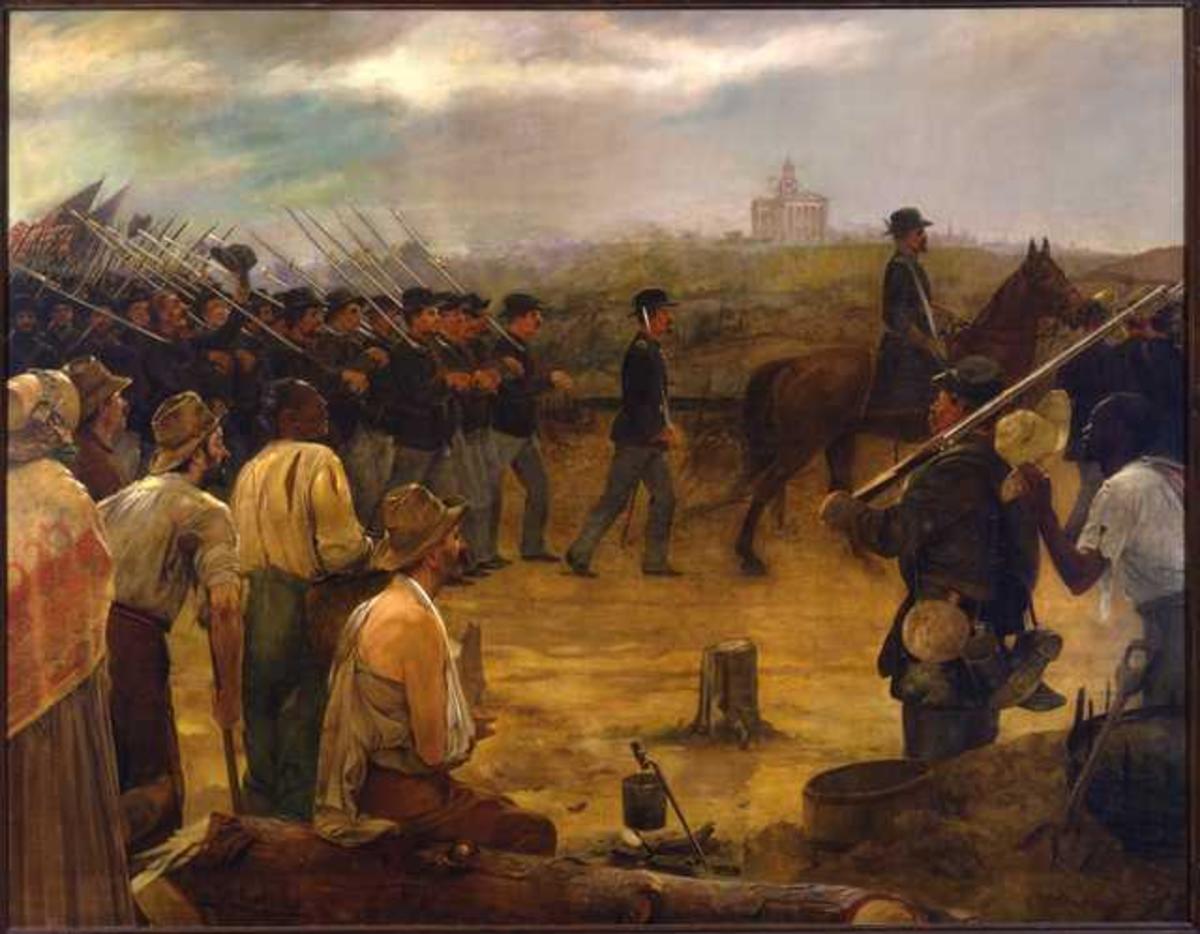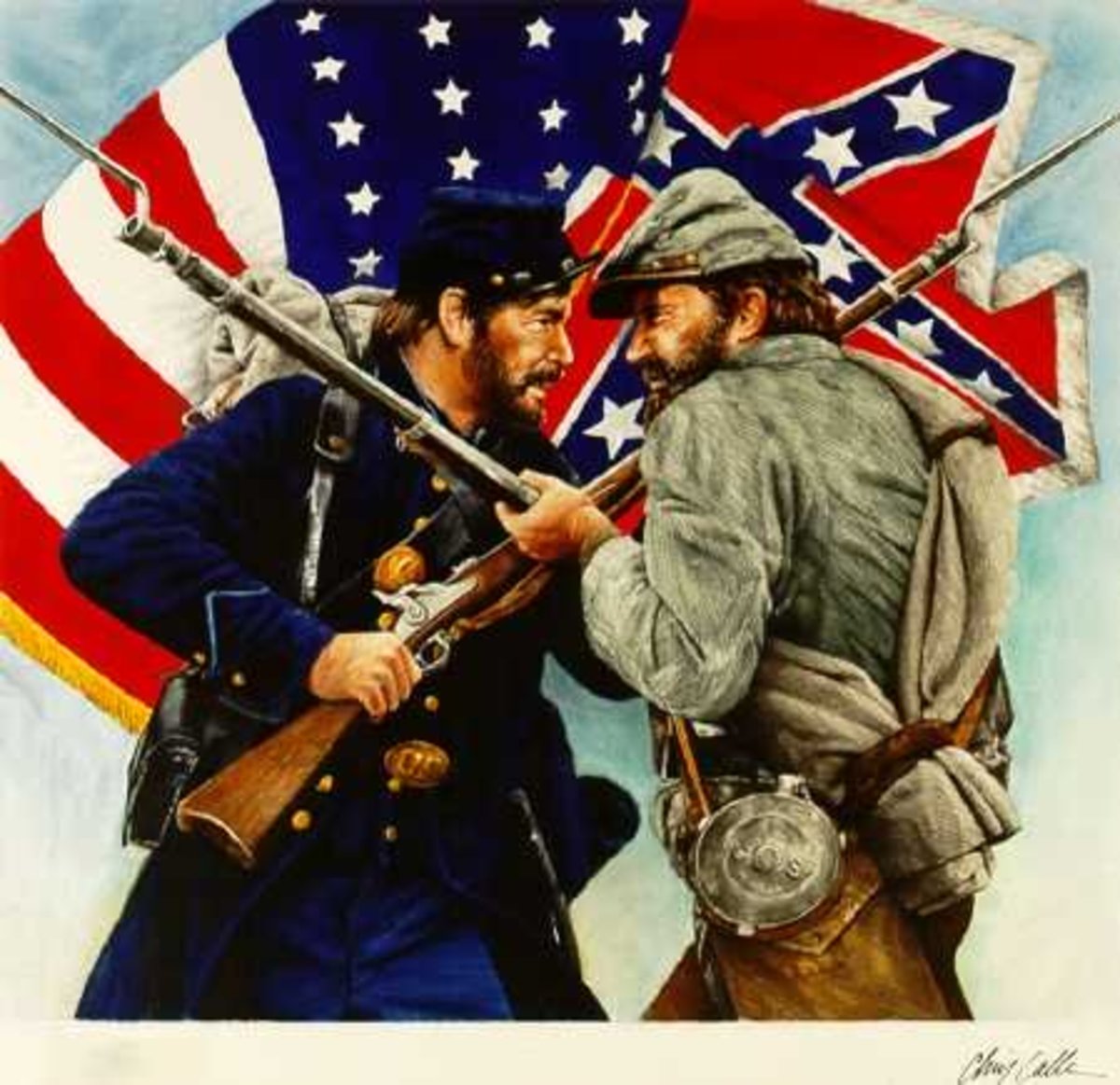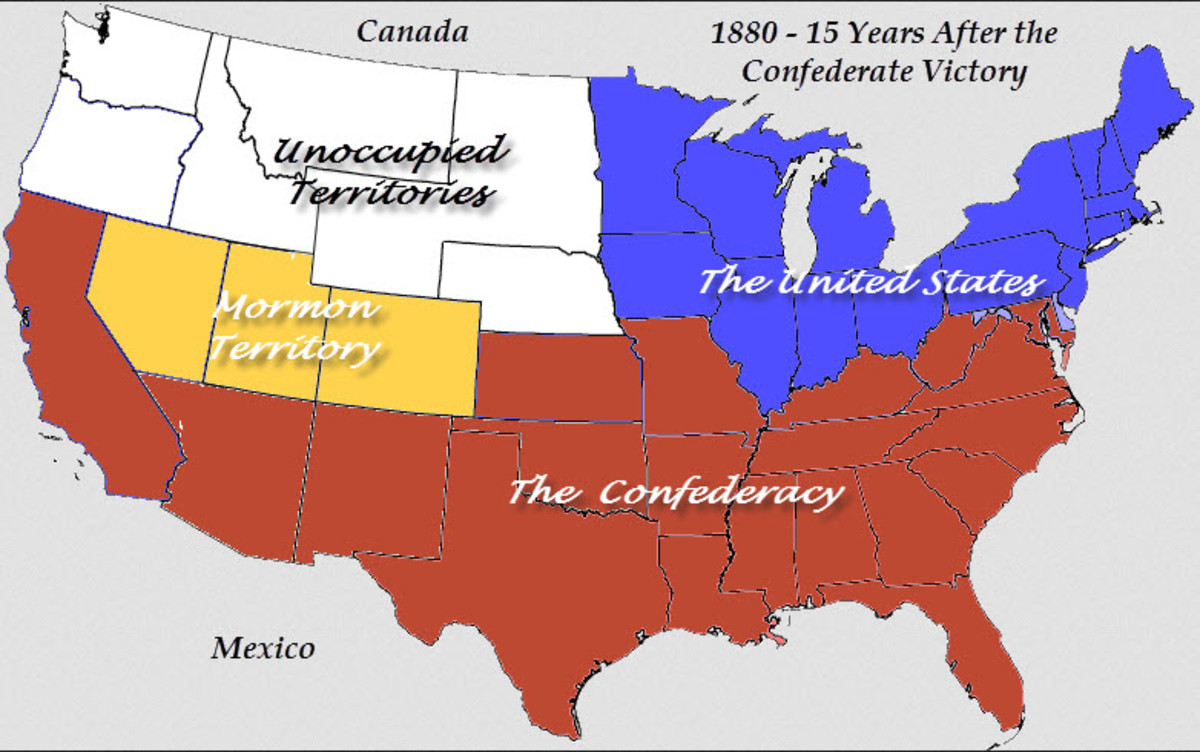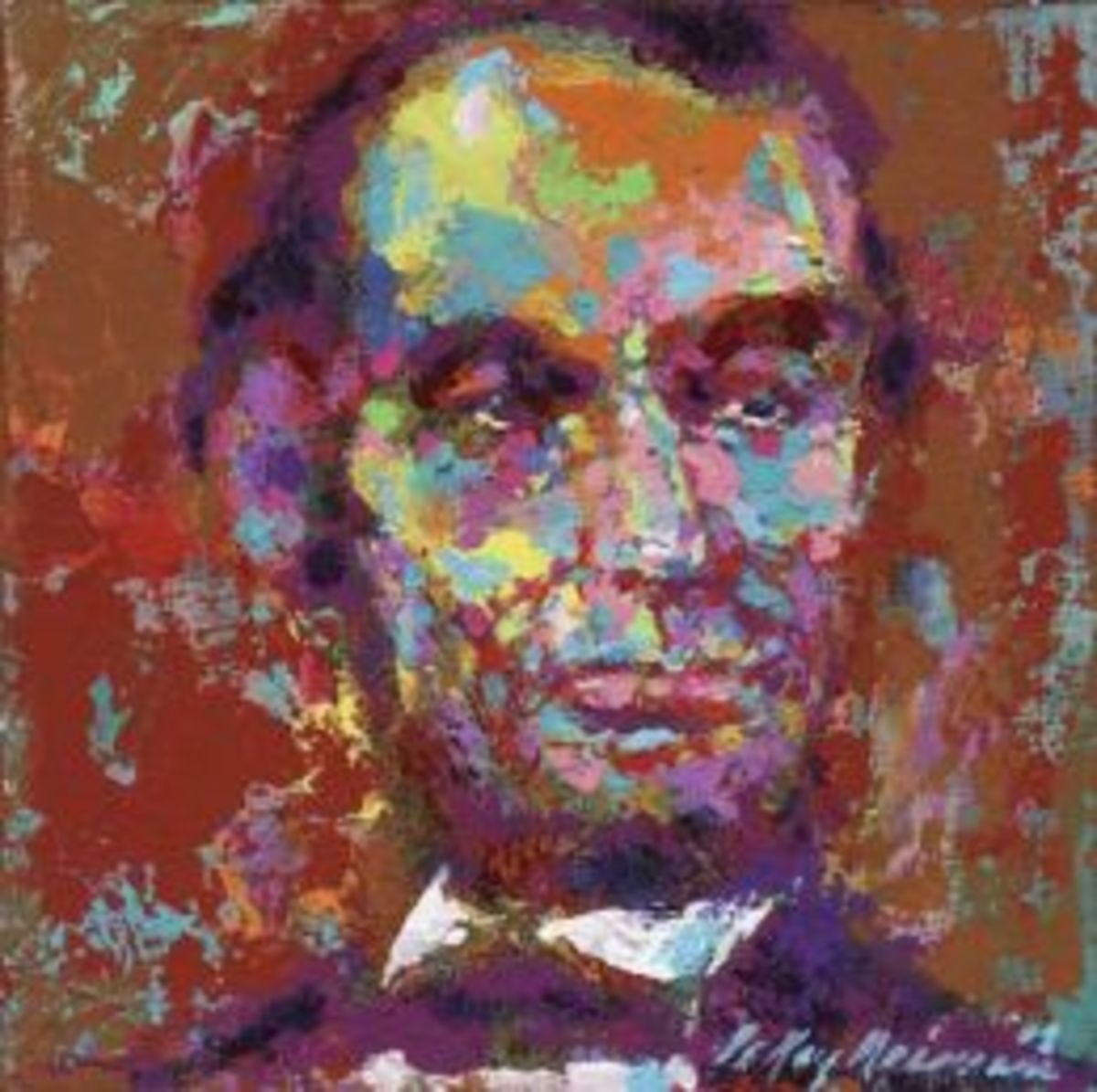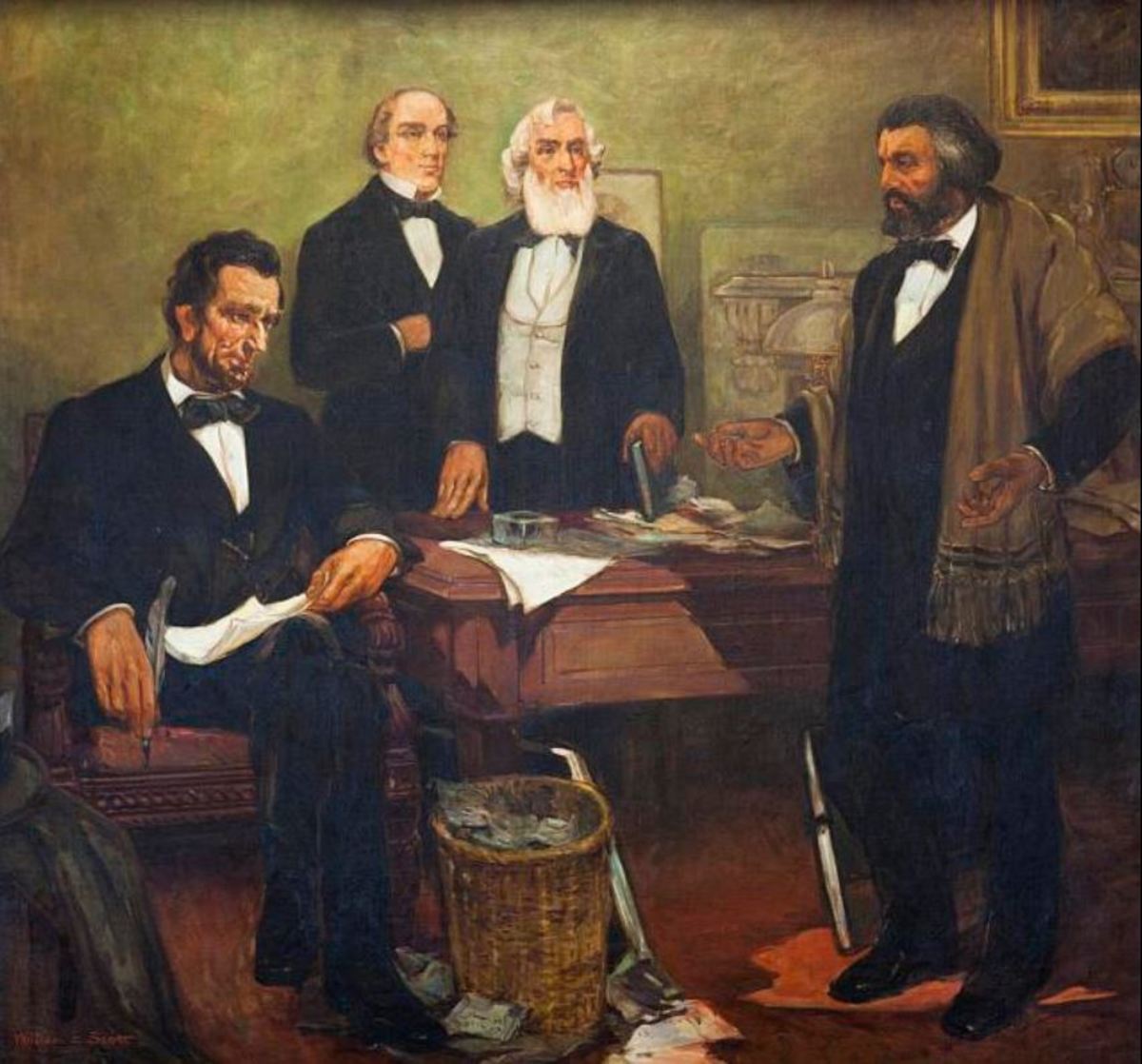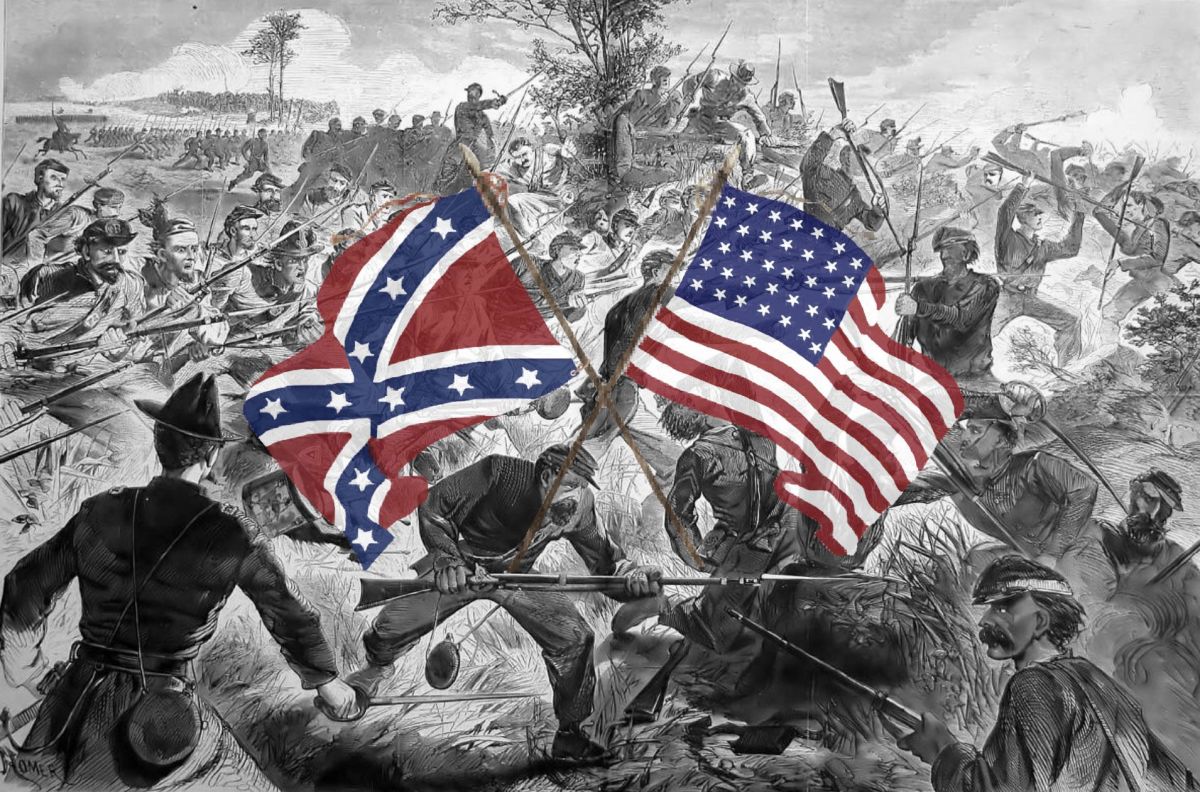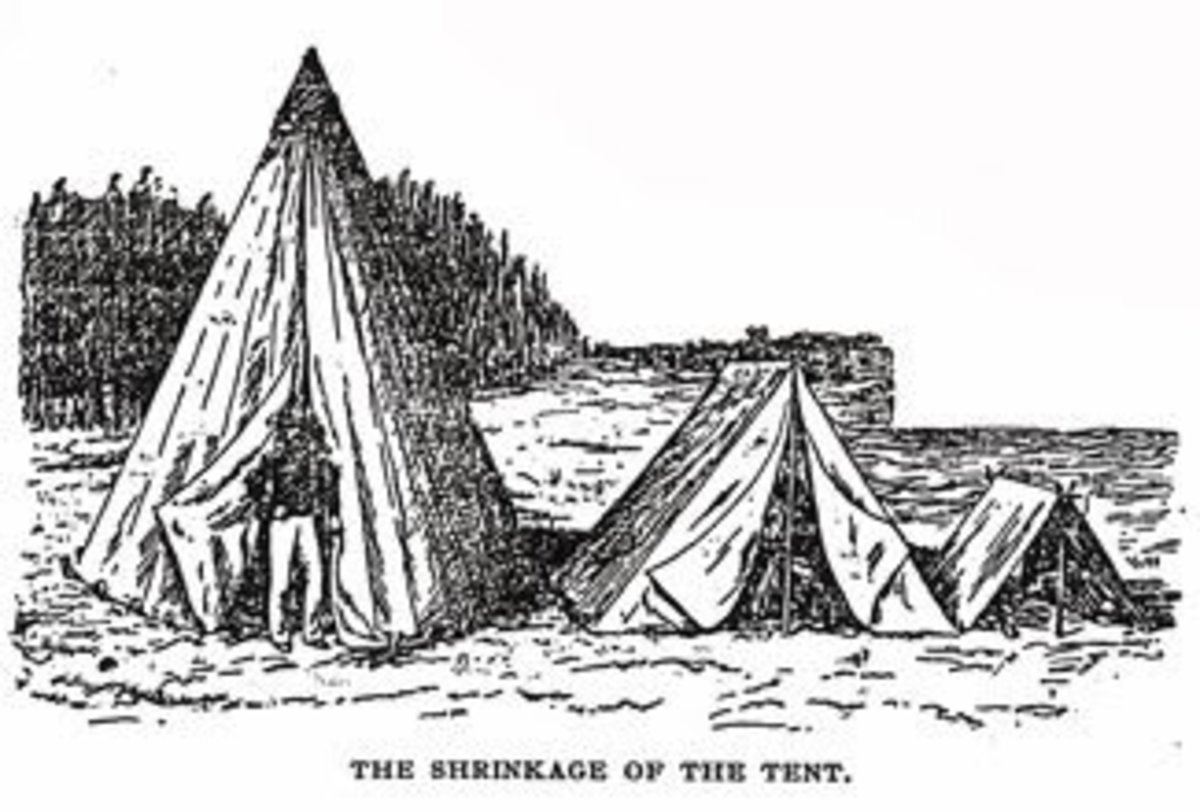- HubPages»
- Education and Science»
- History & Archaeology»
- History of the Americas»
- American History
The Civil War and the real reason it was fought
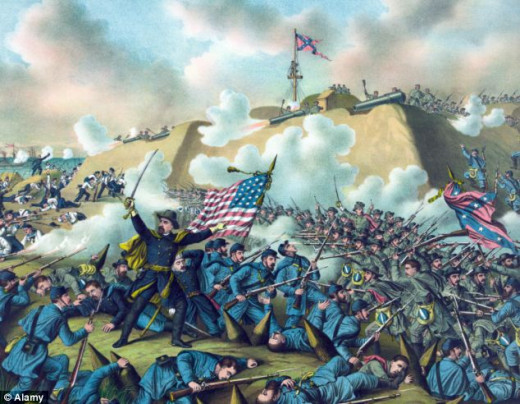
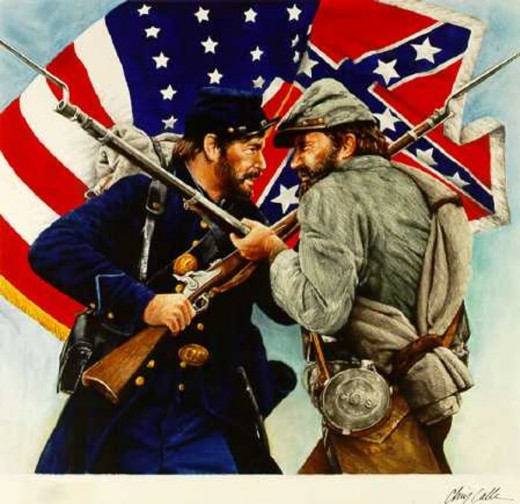
In a poll released in April of 2011, 52% of all Americans said the leaders of the Confederacy seceded to keep slavery legal in their state, when asked the reason behind the Civil War. If you are a member of the 52% then I have bad news for you. The Civil War was not fought because of slavery. Actually slavery had nothing to do with it. The War Between the States began because the South demanded States' rights and they were not getting them. Southerners thought the government was becoming too strong. They did not think the government had the right to tell them how they should live. The country was supposed to be made up of independent sovereign states that combined to be the United States of America. The last straw was in 1860 with the election of Abraham Lincoln. When he won the presidency, most southerners gave up and wanted to secede from the United States of America. They felt if they stayed in the United States, the North would control them. If the South had not declared its independence, Lincoln would not have launched an invasion, and there would have never been a war.
There were important economic and political differences between the North and the South that were major reasons for the South's desire for independence. The Congress at that time heavily favored the industrialized northern states to the point of demanding that the South sell its cotton and other raw materials only to the factories in the north. This made it hard for people living in the Southern states to survive. They were no longer making as much money from selling tobacco and cotton. And the goods that they were buying from the North were taxed so highly that most people in the South could not afford them. You have to remember at this time the country was less than 100 years old. And one of the main reasons that we broke away from Great Britain was because of taxation without representation. The people were sick and tired of paying all of these taxes to a king in a far off place while they lived in poverty. The Southerners felt the same way as their ancestors and decided to break away from the Union. Jefferson Davis, himself, mentioned the South's complaints about Northern protectionist tariff policies in his first message to the Confederate congress. In all, 11 states seceded from the Union and 5 additional states didn't want to pick sides and its inhabitants fought for both sides, the first being South Carolina on December 20, 1860.
Before most of you say that I do not know what I am talking about. I want you to ask yourself one thing. Do you believe that Lincoln and his fellow Republicans would have accepted secession if the Confederacy had announced it was abolishing slavery after the First Battle of Manassas? I can guarantee you that the answer would have been no. I know most if not all of us have been taught that the Civil War was all about the abolition of slavery, but this just is not true. I am not saying that the abolition of slavery was not a great bi-product of the war. But it was by no means a reason for the war.
Lincoln himself was not for or against slavery. He even supported a constitutional amendment that would have given additional legal protection to slavery. In one of his speeches he said "I have no purpose, directly or indirectly, to interfere with the institution of slavery in the States where it exists. I believe I have no lawful right to do so, and I have no inclination to do so." After all, the Constitution sanctioned slavery. Article I, Section II, specifically designated that slaves would only be counted as 3/5 of a person on issues of congressional representation and taxes. And Article IV, Section II required the return of fugitive slaves to their masters.
The "Emancipation Proclamation", which was not put into effect until about two years after the war had started, was only signed after the Union war effort continued to falter abd the federal treasury was almost empty. Because of this Lincoln finally caved under intense pressure from the ”Radical Republicans" in Congress, who were threatening to cut off funds from the army if Lincoln didn't issue some kind of emancipation statement.
The proclamation was not law. No state adopted it and congress never enacted it. In fact the proclamation freed no one. It only applied to the slaves that were held in the states that were in open rebellion, i.e. the south. It granted no citizensip to those who were already freed and it did not outlaw slavery anywhere. If Lincoln was so worried about freeing the slaves then he would have made the proclamation applicable to the states that were actually in the union or in the southern states that were federally controlled. After the proclamation was put into place nearly a quarter of a million people fled from the Union army, almost 100 thousand escaped to Canada to avoid the rest of the war, and another 12 thousand or so avoided the draft.
So if you envision the Civil War as Northerners mythologized as gladiators going to war to free the slaves then you are sadly mistaken. The North went to war for one reason, to hold the Union together.

